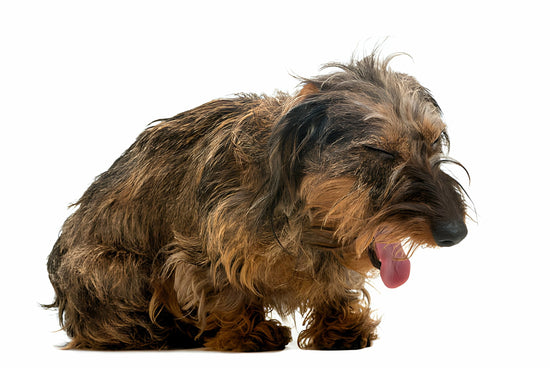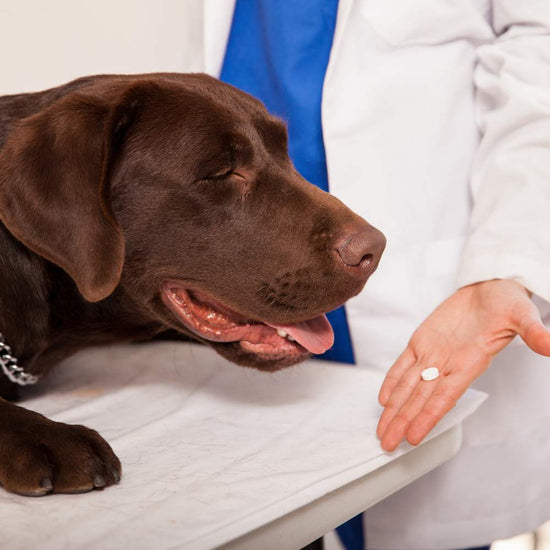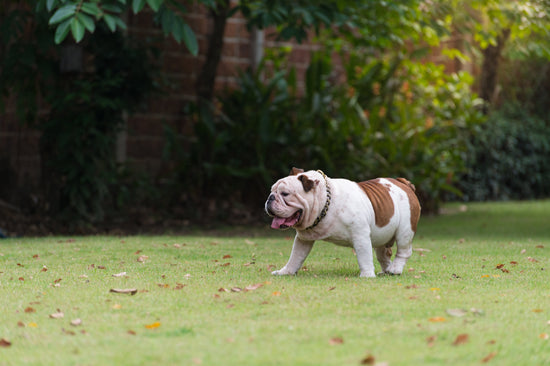In 24 cities
Unleash Protection: The Rabies Vaccine for Dogs Explained
| 26 Mar 2024
Does your dog love sniffing out adventures in the great outdoors? That's fantastic! But with all that exploration comes the responsibility to keep them safe. One crucial way to do that is with the rabies vaccine for dogs.
Rabies is a deadly viral disease that affects the nervous system of mammals, including dogs and humans. It is typically transmitted through the bite of an infected animal, most commonly through the saliva. Rabies is highly contagious and can be fatal if left untreated. This is why vaccination is crucial for safeguarding the health and well-being of your furry friend.
What's Inside?
What is Rabies and Why is Rabies Vaccine Important?

Rabies is a viral infection that targets the nervous system of mammals, including our beloved canine companions. It's a zoonotic disease, meaning it can spread from animals to humans, making it a serious public health concern.
How is Rabies Transmitted?
The rabies virus is primarily transmitted through the bite of an infected animal, as it's present in their saliva.
However, exposure to other bodily fluids like blood or tissues can also lead to infection if they come into contact with open wounds or mucous membranes.
Why is Vaccination Important for Dogs?
Vaccinating your furry friend against rabies isn't just a smart move – it's a life-saving necessity. Not only does it protect your pup from this deadly disease, but it also helps prevent the spread of rabies to humans and other animals in your community. Think of it as a superhero cape for your canine pal!
The Rabies Vaccine: Your Dog's Saviour Against Rabies

What is the Rabies Vaccine?
The rabies vaccine for dogs is a powerful weapon in the fight against this deadly virus. It works by stimulating your pet's immune system to produce antibodies that can neutralise the rabies virus if they're exposed to it. Talk about a furry little superhero!
There are two main types of Rabies Vaccines for Dogs:
Killed Virus Vaccines: These vaccines contain inactivated, non-infectious forms of the rabies virus. They're safe for most dogs but may require more frequent boosters to maintain adequate protection.
Modified Live Virus Vaccines: These vaccines contain a weakened, attenuated form of the rabies virus that can't cause the disease in healthy animals. They typically provide longer-lasting immunity but may not be suitable for dogs with compromised immune systems.
What is the Rabies Vaccination Schedule for Dogs?

Proper timing and adherence to the recommended anti rabies vaccine schedule for dogs are crucial for ensuring optimal protection against this deadly villain.
When Should Puppies Receive Their First Rabies Vaccine?
Puppy power starts early! Little furry crime-fighters should receive their first rabies vaccine dose for dogs at around 12-16 weeks of age, followed by a booster shot one year later. This initial series helps them build a strong foundation of immunity.
How Often Should Adult Dogs Be Vaccinated?
Once your dog has their puppy powers, they'll need regular boosters to maintain their rabies-fighting abilities. Adult dogs should receive an anti rabies vaccine for dogs every one to three years, depending on the type of vaccine used and local regulations. Your trusty vet consulting can guide you on the perfect schedule for your pet.
Are there any Exceptions or Special Circumstances for the Rabies Vaccine?
Dogs with increased exposure to wildlife or those living in rural areas may need more frequent boosters. Some states or countries also have specific requirements for the anti-rabies vaccine schedule for dogs, so it's essential to check with your local veterinarian.
Rabies Vaccine Safety and Side Effects: Keeping Your Superhero Safe

While the rabies vaccine cost for dogs is relatively affordable, ensuring your pet's safety during and after the vaccination process is paramount.
Common side effects of the rabies vaccine are usually mild and temporary, like a little post-battle fatigue.
These may include lethargy, decreased appetite, mild fever, or soreness at the injection site.
Most dogs recover from these side effects within a day or two without any adverse long-term effects.
However, in rare cases, more severe reactions can occur.
How to Recognize an Adverse Reaction to the Rabies Vaccine?
Signs may include vomiting, diarrhoea, difficulty breathing, swelling of the face or neck, or collapse. If you notice any concerning symptoms, what to do if your dog has a reaction is to contact your veterinarian immediately for proper medical attention.
It's also important to note that the rabies vaccine for dogs is specifically formulated for animals and cannot cause side effects in humans. However, if you're accidentally exposed, it's still recommended to seek medical advice as a precautionary measure.
Conclusion

Protecting your canine companion from the deadly rabies virus is not only a legal requirement in most areas but also a responsible choice for their well-being and that of your family and community. By staying up-to-date on the anti-rabies vaccine for dogs and following the recommended vaccination schedule, you can enjoy peace of mind and ensure your furry superhero remains healthy and safe.
Remember, rabies is a preventable disease, but once clinical symptoms appear, it's invariably fatal. Don't let this villain get the best of your pup – vaccinate and be a responsible pet parent!
FAQs

How Long is a Rabies Vaccine Good for in a Dog?
The duration of protection offered by the rabies vaccine for dogs can vary depending on the type of vaccine used. Generally, killed virus vaccines provide protection for around 1 year, while modified live virus vaccines can offer immunity for up to 3 years.
However, it's essential to follow your veterinarian's recommendations and local regulations for booster schedules.
When Should a Dog Get a Rabies Vaccine?
Puppies should receive their first rabies vaccine dose at around 12-16 weeks of age, followed by a booster shot one year later. This initial series helps establish a strong foundation of immunity against the rabies virus.
How many Doses of Rabies Vaccine for Dogs?
The number of doses required for the rabies vaccine in dogs can vary. Puppies typically need an initial series of two doses, given around 12-16 weeks of age and then a booster shot one year later. Adult dogs typically require a single booster dose every 1-3 years, depending on the type of vaccine used and local regulations.
How Often Do Dogs Get Rabies Shots?
The frequency of rabies shots for dogs depends on the type of vaccine used and local regulations. Generally, adult dogs need a rabies booster shot every 1-3 years after the initial puppy series.
However, some areas may require annual boosters, so it's best to consult with your veterinarian for the appropriate schedule.
Is a Rabies Booster Necessary for Dogs?
Yes, rabies boosters are necessary for dogs to maintain adequate protection against the rabies virus. The immunity provided by the initial puppy series of vaccines can wane over time, making regular booster shots crucial for ensuring your furry friend remains protected.
Is Rabies Yearly for Dogs?
The frequency of rabies vaccination for dogs can vary. While some areas may require annual rabies boosters, others may follow a 1-3 year schedule, depending on the type of vaccine used and local regulations.
It's essential to consult with your veterinarian and follow the recommended schedule for your area to ensure your dog's protection against this deadly disease.
What is the Rabies Vaccine Cost for Dogs?
The price of the rabies vaccine for dogs in India can vary depending on the location, type of veterinary clinic or hospital, and whether you opt for additional services or bundles.
Generally the rabies single dose shot cost around 200 to 800 rupees in India in most animal hospitals and Veterinary Clinics in India. There are private clinics that charge around 500 to 1200 rupees for the rabies vaccination dose.
NGOS and Municipal Corporations often schedule rabies vaccination camps for dogs at subsidised rates in around 100-300 rupees.
Can a Vaccinated Dog Get Rabies?
While the rabies vaccine is highly effective in preventing the disease, it is still possible, though scarce, for a vaccinated dog to contract rabies in India.
However, the vaccine significantly reduces the risk of infection and provides crucial protection for your dog.
In most cases, if a vaccinated dog is exposed to the rabies virus, the vaccine will stimulate its immune system to produce antibodies that can effectively fight the virus before it causes any symptoms or illness.



 Golden Retriever
Golden Retriever
 German Shepherd
German Shepherd
 Labrador
Labrador
 Rottweiler
Rottweiler
 Beagle
Beagle
 Preventive Care
Preventive Care
 System wise
System wise
 Supplements
Supplements
































































































































































